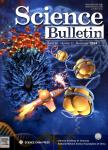HLA-G inhibits xenogenetic cytotoxicity mediated by human NK cells and T lymphocytes against PECs
HLA-G inhibits xenogenetic cytotoxicity mediated by human NK cells and T lymphocytes against PECs作者机构:Institute of Genetics and Developmental BiologyChinese Academy of SciencesBeijing 100080China
出 版 物:《Chinese Science Bulletin》 (中国科学通报)
年 卷 期:2003年第48卷第2期
页 面:148-153页
核心收录:
学科分类:1001[医学-基础医学(可授医学、理学学位)] 100102[医学-免疫学] 10[医学]
基 金:This work was supported by the National Natural Science Foundation of China(Grant No.39993430) by the National?63?Project(Grant No.2001AA216071)
主 题:HLA-G xenotrasplantation immune rejection gene overexpression cytotoxicity
摘 要:In order to investigate whether the non-classi- cal HLA-G classⅠmolecule protects the porcine endothelial cells (PECs) from the lysis mediated by human immune cells in pig to human discordant xenotransplantation, we have cloned HLA-G cDNA from a human placenta by RT-PCR. Mammalian expression vector, pEFG-neo, was constructed by insertion of HLA-G cDNA in pEF-neo. We obtained effi-ciently expressed PECs by stable transfection. Cytotoxicity assay showed that overexpression of HLA-G on PECs was sufficient to inhibit human NK-92 cell lysis. The level of lysis was equal to or less than that of the lysis of human umbilical vein endothelial cells mediated by human NK-92 cells. It also indicated that HLA-G inhibited the lysis of PECs mediated by xeno-antigen specific T lymphocytes. The reduction of lysis ranged between 59.1% and 88.9%. These findings sug-gest that the transgenic approach to overexpress HLA-G is believed to be a new immunotherapy in overcoming the im-mune rejections in xenotransplantion, including delayed xenograft rejection and cell-mediated rejection.



